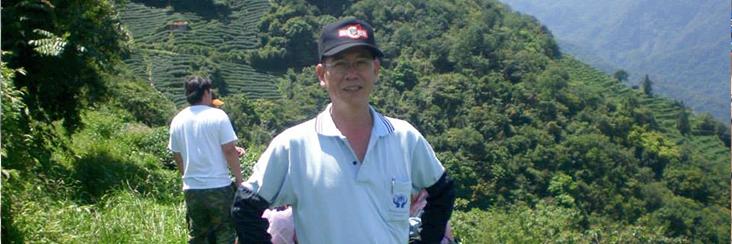
Traditionally Made Transitional Organic Jin Xuan Oolong | Eco-Cha Tea Club
Well, the holidays seemed to fly past, with our first two monthly batches of tea we shared with you, and here we are preparing to pack up and ship our third installment of the Eco-Cha Tea Club. As you know, we search for teas to share in the Tea Club that are unique and not offered on the general market (or even in our own store) due to their limited edition, rare batch factor. This month's batch is exciting because it embodies all the main aspects of what Eco-Cha strives to represent. It was cultivated on a residential farm, it's a small harvest, it was processed using traditional methods, and it was naturally cultivated. All this adds up to sustainable practice in preserving the local specialty tea industry by providing tea lovers with what you want — quality, interesting tea. Once again, we feel both privileged and proud to be able to do so.

This month's batch of tea is from the recent winter harvest of a plot of Jin Xuan tea grown in Fenghuang Village, Taiwan. The farmer decided to go organic after last spring's harvest. So no chemical products have been used on these plants since last spring. That means two (summer and fall) seasons of naturally grown leaves were harvested before this batch. The special aspect of this batch is that it is a winter crop that was affected by the Leaf Hopper. This is a rare occurrence that only a few tea makers are interested in. It's a complicated combination of factors to take on in the processing of such a crop. Winter tea is generally less prone to higher levels of oxidation due to a lower moisture content in the leaf based on seasonal growing conditions. On the other hand, bug-bitten leaves are found to have optimal results when sufficiently oxidized — up to 40%. So, finesse is warranted in processing this winter batch of naturally grown Jin Xuan leaves exhibiting the rare seasonal presence of the Green Leaf Hopper.
This batch was procured from a friend in Lugu who is a professional tea judge, organic tea farmer, and master roaster who specializes in sourcing and roasting batches of naturally cultivated "bug-bitten tea". In other words, he is specializing in the broad category of tea that was given the name Concubine Oolong in Lugu, Taiwan — following the 9/21 earthquake in 1999. Concubine Tea was derived from its predecessor Oriental Beauty in northern Taiwan. The signature characteristic of both of these teas being that the leaves have been affected by the Green Leaf Hopper (Jacobiasca formosana or 茶小綠葉蟬) in their early growth stage. This results in a stunted growth of the leaf involving partial oxidation while the leaf is still growing. The immune system response from the plant results in an altered chemical composition in the leaf that produces a hearty character and often a honey essence flavor. A more complex, broad spectrum of character results from natural farming, which often includes the participation of the Green Leaf Hopper.
We refrain from giving it the name Concubine Tea because it has a different flavor profile than the obvious honey notes that Concubine and Oriental Beauty are known for offering from late spring and summer harvests. This winter batch of Jin Xuan has a character of its own, which embodies the Green Leaf Hopper effect in a unique way. It has the substantial, complex, deeper profile of a winter tea with subtle flavors resulting from the bug-bitten effect. This, combined with a discerning, light-medium roasting of the leaves over three sessions offers a satisfying brew with a distinct profile.
Here's Andy with Mr. Lee and his wife Guo Huan Ling and their mutual friend Assam at a private tea party on Dong Ding Mountain a few years ago.


